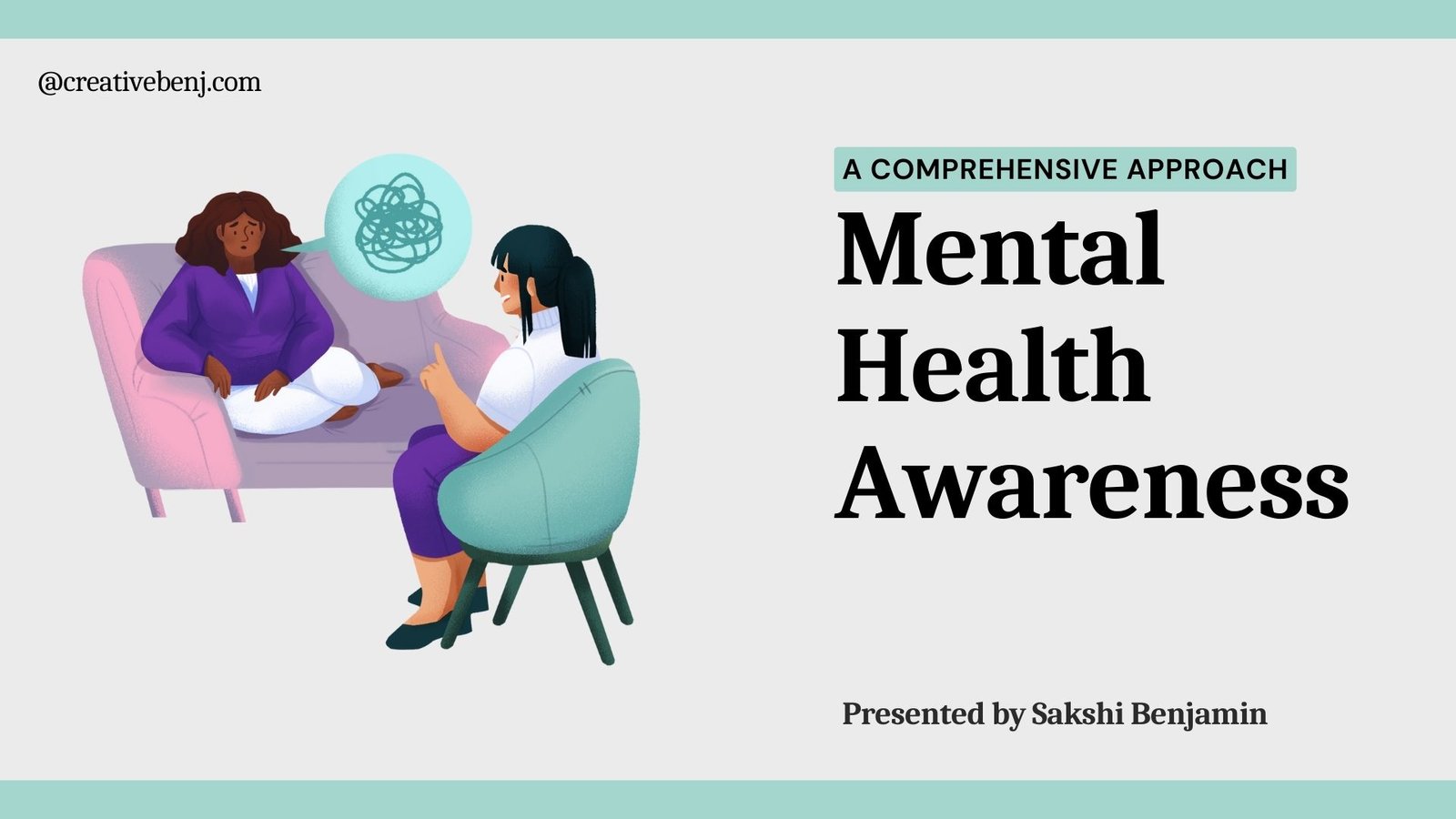Introduction
It is understandable that mental health has gained prominence in public conversation in recent years. Raising awareness of mental health issues is essential to creating a culture in which getting care for one’s mental health is not seen as a sign of weakness and is valued equally with physical health. This blog explores the value of mental health awareness, related issues, and practical actions that may be taken to promote mental health.
The Importance of Mental Health Awareness
Our emotional, psychological, and social well-being are all included in our mental health. It has an impact on our thoughts, feelings, and behaviors and is essential to how we manage stress, interact with people, and make decisions. Every stage of life, from infancy and adolescence to maturity, depends on mental wellness.
Raising awareness about mental health is important for several reasons:
- Early Identification and Intervention: Raising awareness can help identify mental health problems early on. Similar to medical ailments, results can be greatly enhanced by early intervention. Early detection of mental health issues can result in more efficient assistance and treatment.
- Enhancing Life Quality: Taking care of mental health concerns may make a big difference in a person’s life quality. Better relationships, more productivity, and enhanced emotional well-being can all result from receiving appropriate care and support.
- Developing Resilience: Gaining an understanding of mental health can assist people in creating coping mechanisms to handle stress and hardship, so increasing their resilience to life’s obstacles.
Challenges in Mental Health Awareness
Despite the growing recognition of mental health issues, several challenges remain:
- Stigma & Discrimination: Discrimination and unfavorable preconceptions about people with mental health disorders are still present. This may cause social isolation and deter individuals from asking for assistance.
- Lack of Education: A lot of individuals still don’t know what symptoms and indicators indicate mental health problems. Erroneous beliefs on mental health might result in misinterpretation and maltreatment of individuals impacted by it.
- Access to Care: People may encounter obstacles to receiving care even when they seek assistance, such as a lack of insurance, budgetary limitations, or a paucity of mental health specialists.
- Cultural Barriers: How mental health issues are seen and handled can be influenced by cultural traditions and beliefs. Mental health issues can be seen as a sign of weakness or shame in some cultures.
Promoting Mental Health Awareness
Education
Education is a powerful tool in promoting mental health awareness. This can be achieved through:
- School Programs: By including mental health education into the curriculum, educators may assist young people in understanding and taking care of their mental health.
- Community Workshops: To reach a wider audience, community-based workshops and seminars may impart important knowledge on mental health.
- Media Campaigns: Reaching a wide audience may be achieved by using media channels to raise awareness. Public education on mental health issues may be aided by social media, print media, and television.
- Workplace Mental Health Training: Employees who get mental health training at work are better equipped to identify warning signs of mental illness and to support coworkers.
Advocacy
Supporting laws and procedures that advance mental health and defend the rights of those who suffer from mental illnesses is known as advocacy. This comprises:
Being conscious of one's mental health is essential to overall wellbeing. We can build a society that values and gives priority to mental health by lowering stigma, encouraging early identification and intervention, and providing support to those who are dealing with mental health issues. Support, advocacy, and education are essential elements of this endeavor. By working together, we can make sure that mental health concerns are given the consideration they need and that those who are impacted by them get the assistance and treatment they require.
In Conclusion

Biden believes there will be “fair election” He is concerned, though
Biden Confident About Election Fairness but Concerned Over Peaceful Transition: Key Insights Ahead of 2024 President Joe Biden has offered a cautious and optimistic assessment

Kremlin Brushes Off U.S. Political Debates on Putin, Focuses on Sovereignty
Political tensions are escalating in the United States as the 2024 presidential election draws near, with contenders sharply criticizing one another’s programs. A recent verbal

Kamala Harris challenges Trump in a CNN interview with Walz, addressing her tendency to flip-flop
In her first in-depth interview since being announced as the Democratic Party’s 2024 presidential contender, Vice President Kamala Harris defended her shifting views on climate

Protect your phone from threats and Viruses: Precautions, Cautions, and Solutions
With everything being digitally connected these days, cellphones have become a necessity in our daily lives. They act as our financial managers, personal assistants, and

Mumbai Citezn woman spends Rs 9.4 lakh on Starbucks coffee orders From Zomato
In India Zomato Celebrates “Mumbai Woman’s ₹9.4 Lakh Starbucks” ? In a world where coffee lovers are known to splurge on their favorite brews, one

Economic Impacts on the Citrus Industry: Florida, California’s in 2024
Economic Impacts on the Citrus Industry : Citrus greening has significant negative effects on the economy. Growers are obliged to replace and remove diseased trees as



